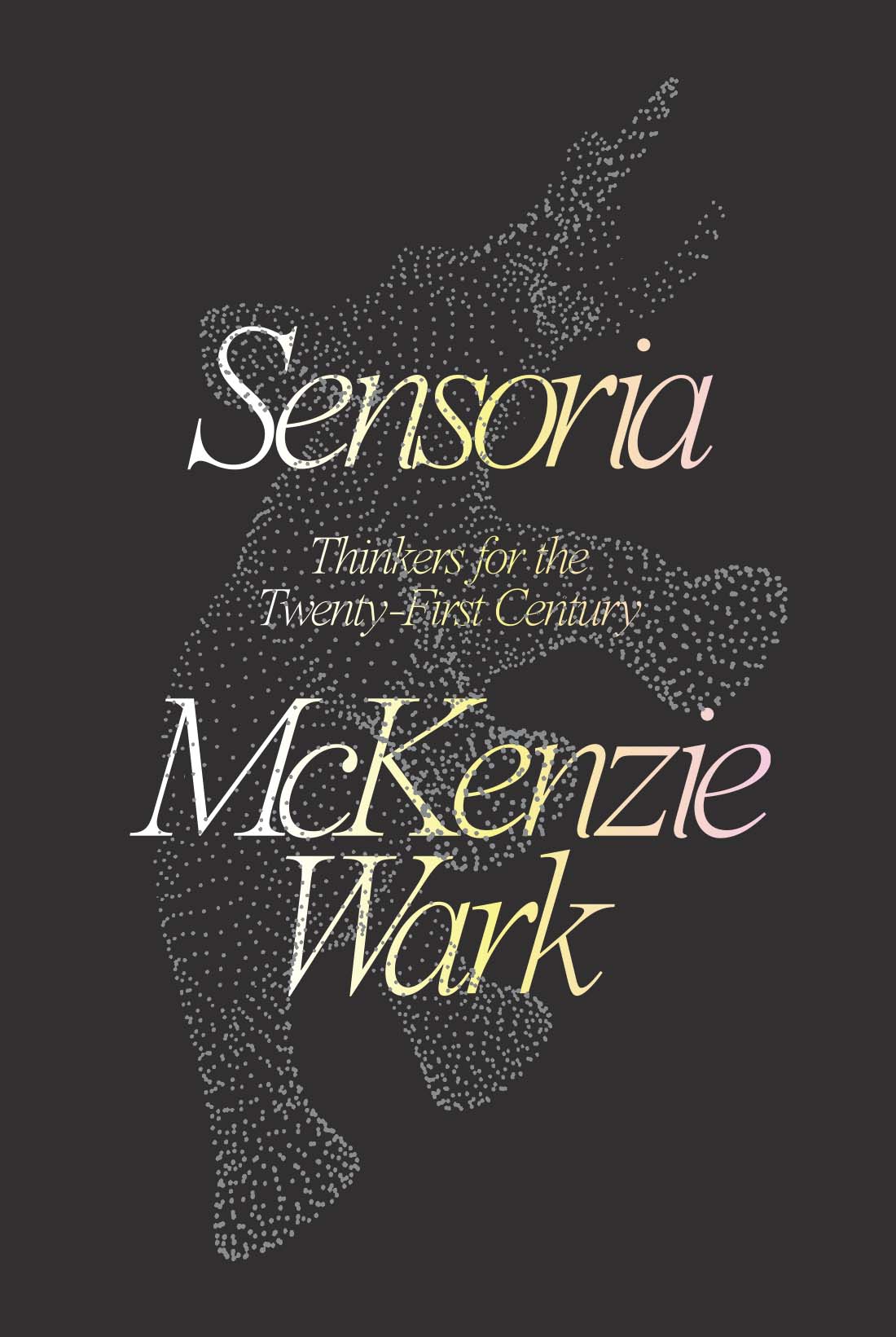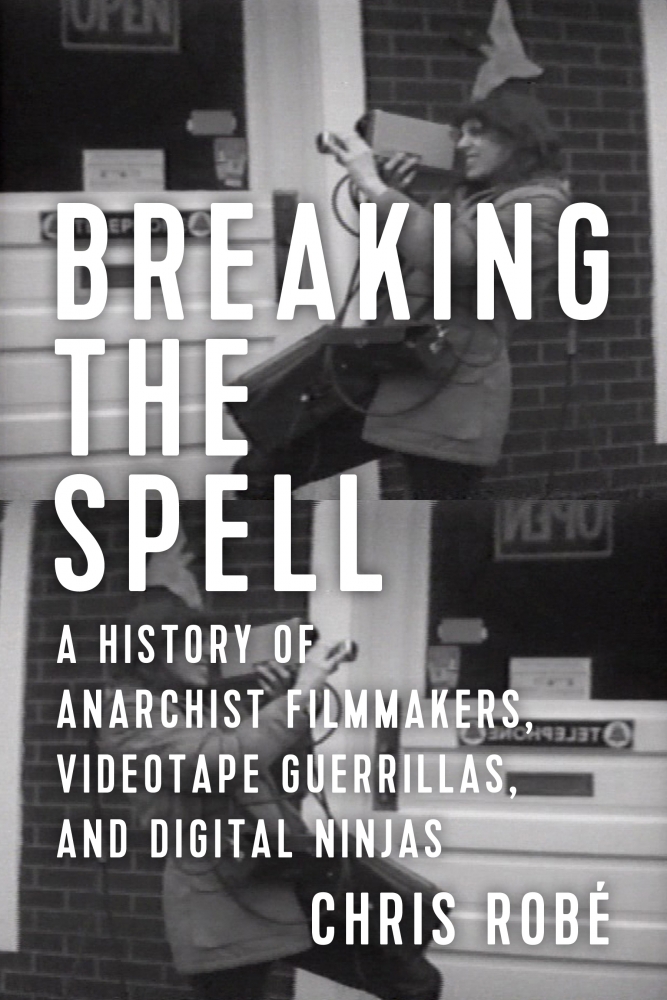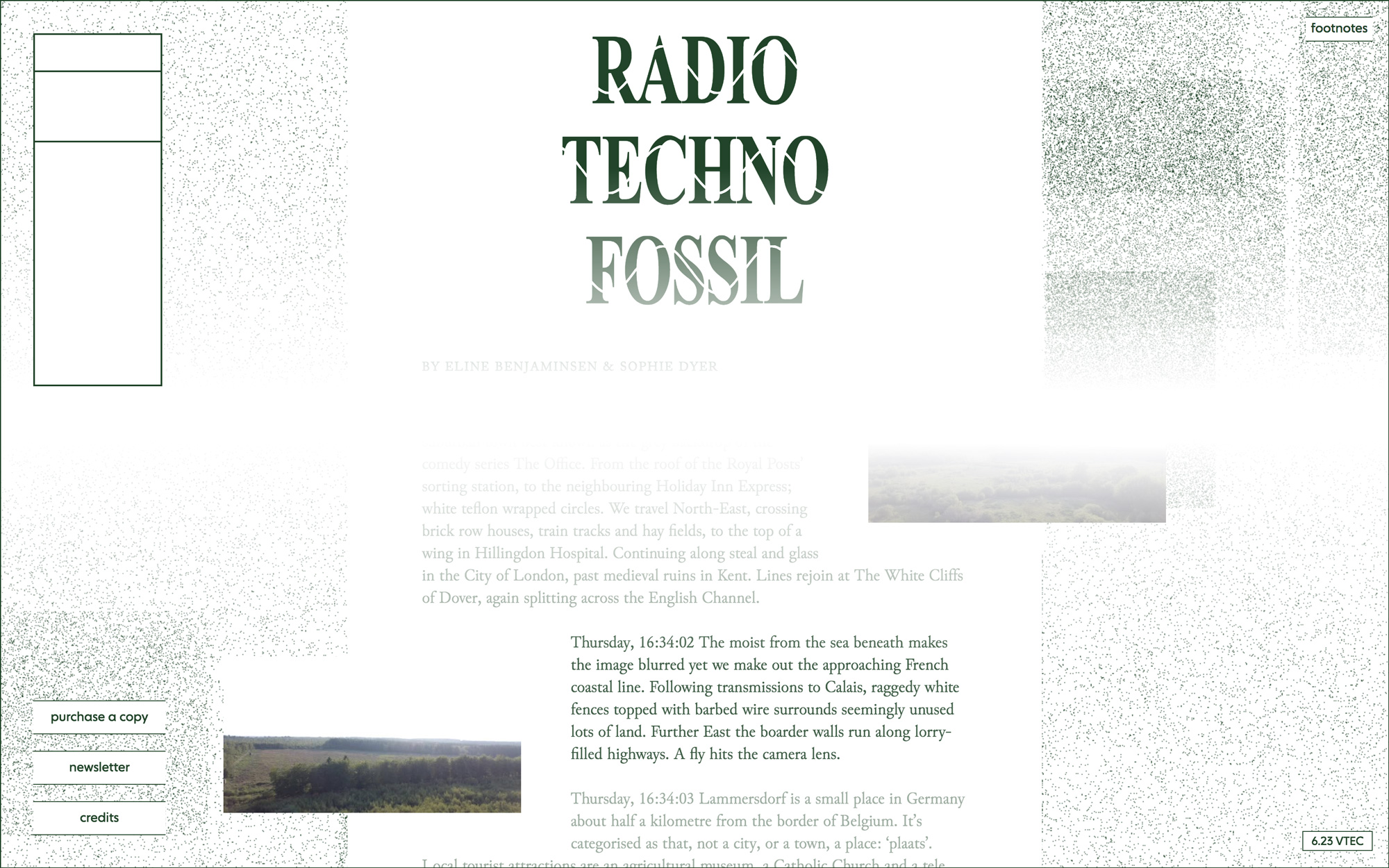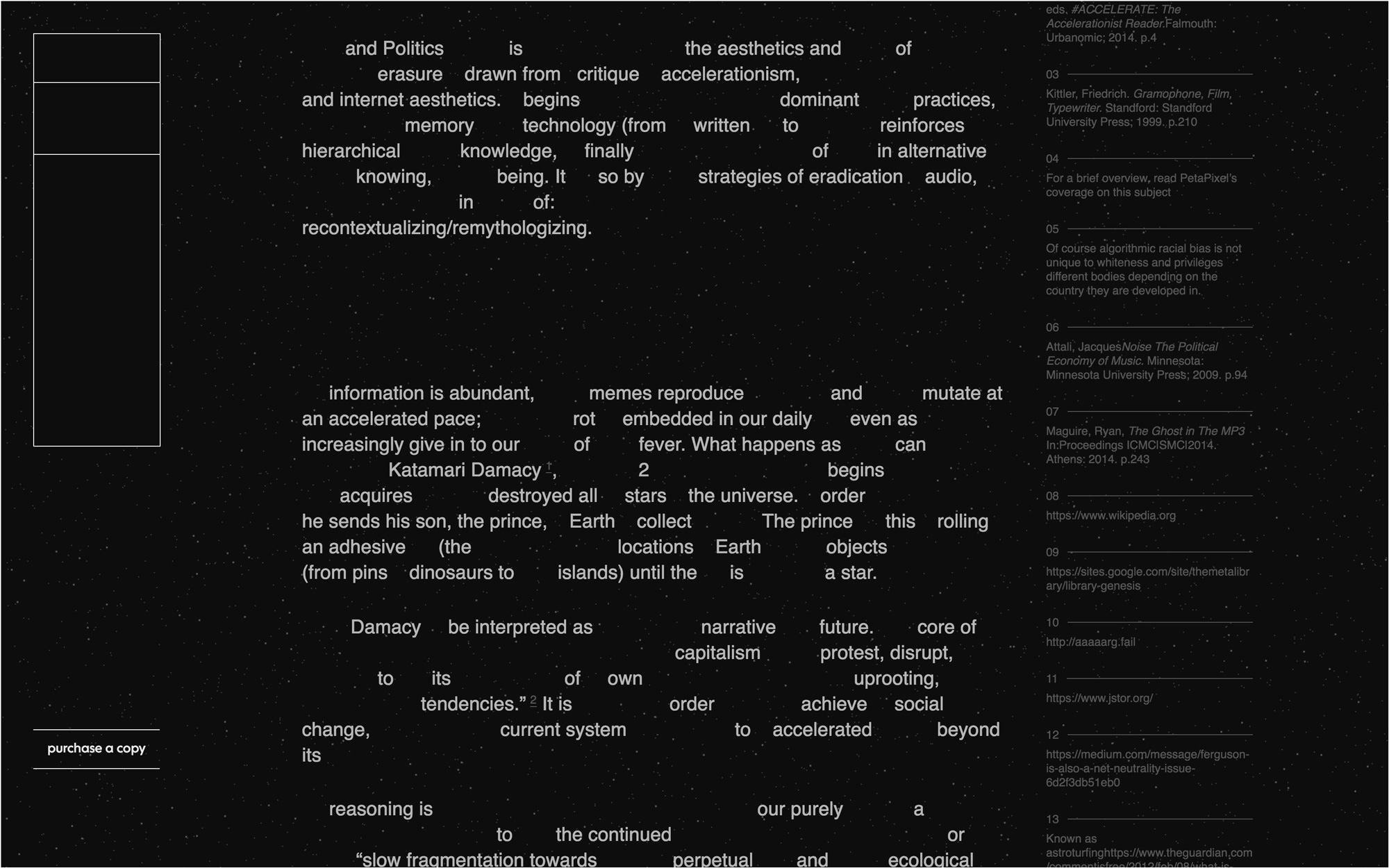McKenzie Wark: Sensoria: Thinkers for the Twenty-first Century (2020)
Filed under book | Tags: · aesthetics, afrofuturism, anthropocene, art, detournement, earth, ethnography, hacker culture, marxism, postcolonialism, technics, theory

“A survey of the key thinkers and ideas that are rebuilding the world in the shadow of the Anthropocene
As we face the compounded crises of late capitalism, environmental catastrophe and technological transformation, who are the thinkers and the ideas who will allow us to understand the world we live in? McKenzie Wark surveys three areas at the cutting edge of current critical thinking: media ecologies, post-colonial ethnographies, and the design of technology, and introduces us to the thinking of seventeen major writers who, combined, contribute to the common task of knowing the world. Each chapter is a concise account of an individual thinker, providing useful context and connections to the work of the others.
The authors include: Sianne Ngai, Kodwo Eshun, Lisa Nakamura, Hito Steyerl, Yves Citton, Randy Martin, Jackie Wang, Wang Hui, Anna Lowenhaupt Tsing, Achille Mbembe, Eyal Weizman, Cory Doctorow, Benjamin Bratton, Tiziana Terranova, Keller Easterling, Jussi Parikka, Deborah Danowich and Eduardo Viveiros de Castro.
Wark argues that we are too often told that expertise is obtained by specialisation. Sensoria connects the themes and arguments across intellectual silos. The book is a vital and timely introduction to the future both as a warning but also as a roadmap for how we might find our way out of the current crisis.”
Publisher Verso Books, London, July 2020
ISBN 9781788735063, 1788735064
296 pages
Reviews: J.J. Charlesworth (ArtReview, 2020), Lindsay Lerman (Entropy, 2020), Travis Diehl (LA Review of Books, 2020), Jessica Caroline and Emily Colucci (Filthy Dreams, 2020).
Comment (0)Chris Robé: Breaking the Spell: A History of Anarchist Filmmakers, Videotape Guerrillas, and Digital Ninjas (2017)
Filed under book | Tags: · activism, aesthetics, aids, anarchism, autonomy, direct action, ecology, film, indigenous peoples, labour, marxism, media activism, neoliberalism, politics, protest, punk, social movements, strike, third cinema, video, video activism, video art

“Breaking the Spell offers the first full-length study that charts the historical trajectory of anarchist-inflected video activism from the late 1960s to the present. Two predominant trends emerge from this social movement-based video activism: 1) anarchist-inflected processes increasingly structure its production, distribution, and exhibition practices; and 2) video does not simply represent collective actions and events, but also serves as a form of activist practice in and of itself from the moment of recording to its later distribution and exhibition. Video plays an increasingly important role among activists in the growing global resistance against neoliberal capitalism. As various radical theorists have pointed out, subjectivity itself becomes a key terrain of struggle as capitalism increasingly structures and mines it through social media sites, cell phone technology, and new “flexible” work and living patterns. As a result, alternative media production becomes a central location where new collective forms of subjectivity can be created to challenge aspects of neoliberalism.
Chris Robé’s book fills in historical gaps by bringing to light unexplored video activist groups like the Cascadia Forest Defenders, eco-video activists from Eugene, Oregon; Mobile Voices, Latino day laborers harnessing cell phone technology to combat racism and police harassment in Los Angeles; and Outta Your Backpack Media, indigenous youth from the Southwest who use video to celebrate their culture and fight against marginalization. This groundbreaking study also deepens our understanding of more well-researched movements like AIDS video activism, Paper Tiger Television, and Indymedia by situating them within a longer history and wider context of radical video activism.”
Publisher PM Press, Oakland, CA, 2017
ISBN 9781629632339, 1629632333
x+469 pages
Interview with author: The New Architects (video, 2017, 43 min).
Reviews: Beth Geglia (Interface, 2017), Franklin Lopez (Fifth Estate, 2017), Patricia R. Zimmerman (Jump Cut, 2018), Allan Atliff (Anarchist Studies, 2017).
PDF (16 MB)
Academia.edu (author)
oneacre.online (2017–)
Filed under artist publishing | Tags: · aesthetics, artificial intelligence, information, internet, radio, technology


“oneacre.online is an experimental publishing and distribution project that utilises an online platform to seed unprintable text-based works by emerging artists. The project explores the possibilities of hyper-publishing in a series of commissioned publications. Thematically the first four place themselves in the online world of constant updates and refresh buttons that, as theorist Wendy Chun observes, “exist at the bleeding edge of obsolescence. We thus forever try to catch up, updating to remain the same”. The publications use the omnidirectional online terrain and actions that are native to it — such as refreshing, instantly available to edit, easily erasable, highlighting, copy-pasting and non linear navigation — to explore and critically evaluate visions and versions of power systems by tracing the politics of technological infrastructures. Hidden in places as traditional as archives, as often used as smart phone applications, omnipresent and inescapable as the financial market and as quiet and evasive as the transfer of information in narrative structures.
The series showcased in December 2017 Poetics and Politics of Erasure by Yun Ingrid Eel, a multidisciplinary research paper on the aesthetics and politics of erasure. In March 2018, Artificial Intelligence Never Has a Headache by Karina Zavidova, a long-form about the fear of AI spread by the media, and the market of productivity-enhancing tools it has fuelled. In July 2018 Radio, Techno, Fossil by Eline Benjaminsen & Sophie Dyer, the story of a radio-image as it traverses the bounds of the Earth’s surfaces, atmospheres and techno-geographies. And in September 2018, Meaning Seeking Animals by Lisa van Casand, a subjective collection of a wide range of perspectives on the transfer of information.”
Made by Stef Kors, Titus Knegtel, Victoria Douka-Doukopoulou
Published 2017-2018
HTML (limited preview; use the direct links above to access publications)
Comment (0)
